Yishuang Li
MM-TTS: Multi-modal Prompt based Style Transfer for Expressive Text-to-Speech Synthesis
Dec 28, 2023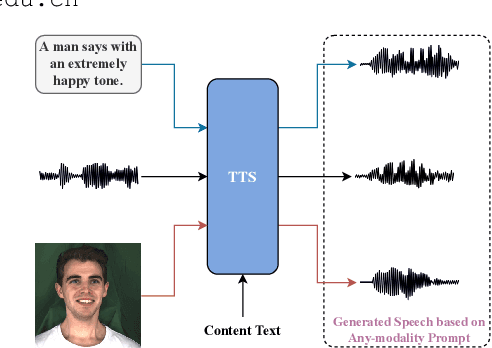


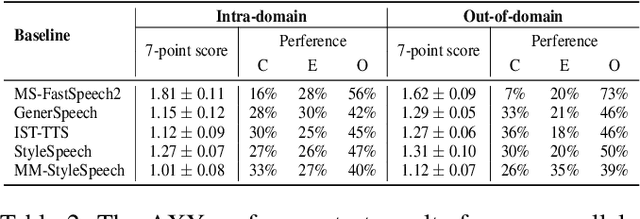
Abstract:The style transfer task in Text-to-Speech refers to the process of transferring style information into text content to generate corresponding speech with a specific style. However, most existing style transfer approaches are either based on fixed emotional labels or reference speech clips, which cannot achieve flexible style transfer. Recently, some methods have adopted text descriptions to guide style transfer. In this paper, we propose a more flexible multi-modal and style controllable TTS framework named MM-TTS. It can utilize any modality as the prompt in unified multi-modal prompt space, including reference speech, emotional facial images, and text descriptions, to control the style of the generated speech in a system. The challenges of modeling such a multi-modal style controllable TTS mainly lie in two aspects:1)aligning the multi-modal information into a unified style space to enable the input of arbitrary modality as the style prompt in a single system, and 2)efficiently transferring the unified style representation into the given text content, thereby empowering the ability to generate prompt style-related voice. To address these problems, we propose an aligned multi-modal prompt encoder that embeds different modalities into a unified style space, supporting style transfer for different modalities. Additionally, we present a new adaptive style transfer method named Style Adaptive Convolutions to achieve a better style representation. Furthermore, we design a Rectified Flow based Refiner to solve the problem of over-smoothing Mel-spectrogram and generate audio of higher fidelity. Since there is no public dataset for multi-modal TTS, we construct a dataset named MEAD-TTS, which is related to the field of expressive talking head. Our experiments on the MEAD-TTS dataset and out-of-domain datasets demonstrate that MM-TTS can achieve satisfactory results based on multi-modal prompts.
Interpretable Style Transfer for Text-to-Speech with ControlVAE and Diffusion Bridge
Jun 07, 2023
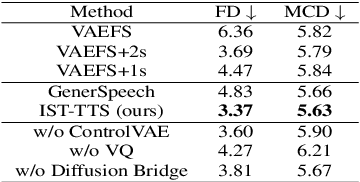
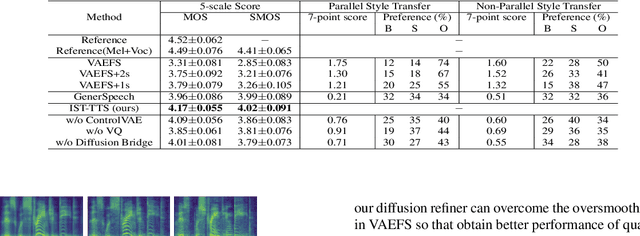
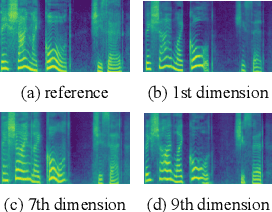
Abstract:With the demand for autonomous control and personalized speech generation, the style control and transfer in Text-to-Speech (TTS) is becoming more and more important. In this paper, we propose a new TTS system that can perform style transfer with interpretability and high fidelity. Firstly, we design a TTS system that combines variational autoencoder (VAE) and diffusion refiner to get refined mel-spectrograms. Specifically, a two-stage and a one-stage system are designed respectively, to improve the audio quality and the performance of style transfer. Secondly, a diffusion bridge of quantized VAE is designed to efficiently learn complex discrete style representations and improve the performance of style transfer. To have a better ability of style transfer, we introduce ControlVAE to improve the reconstruction quality and have good interpretability simultaneously. Experiments on LibriTTS dataset demonstrate that our method is more effective than baseline models.
 Add to Chrome
Add to Chrome Add to Firefox
Add to Firefox Add to Edge
Add to Edge